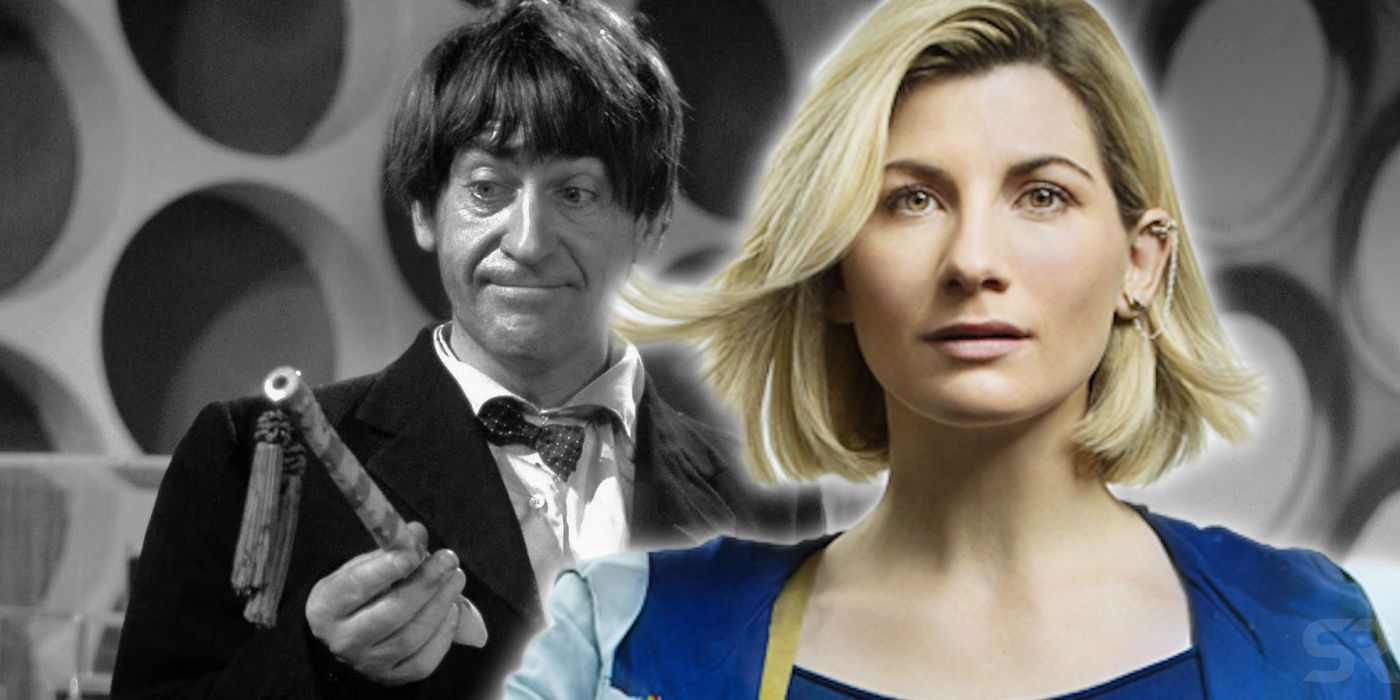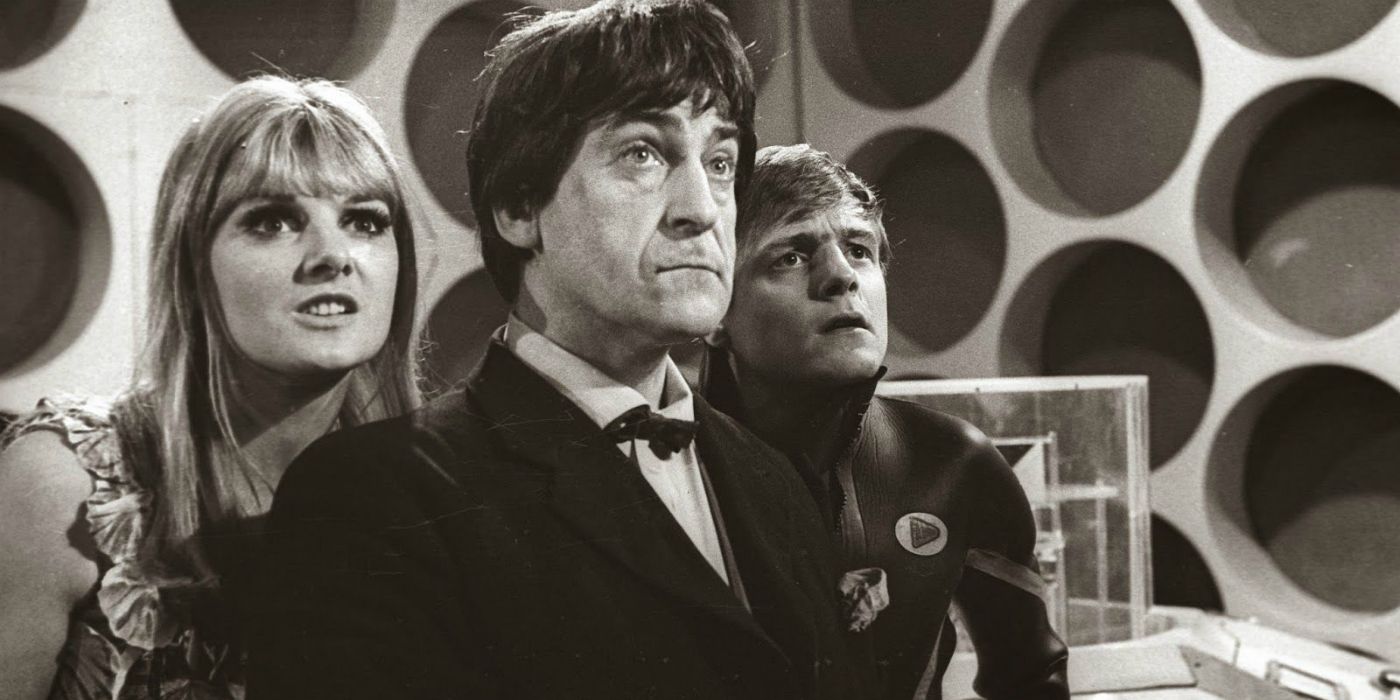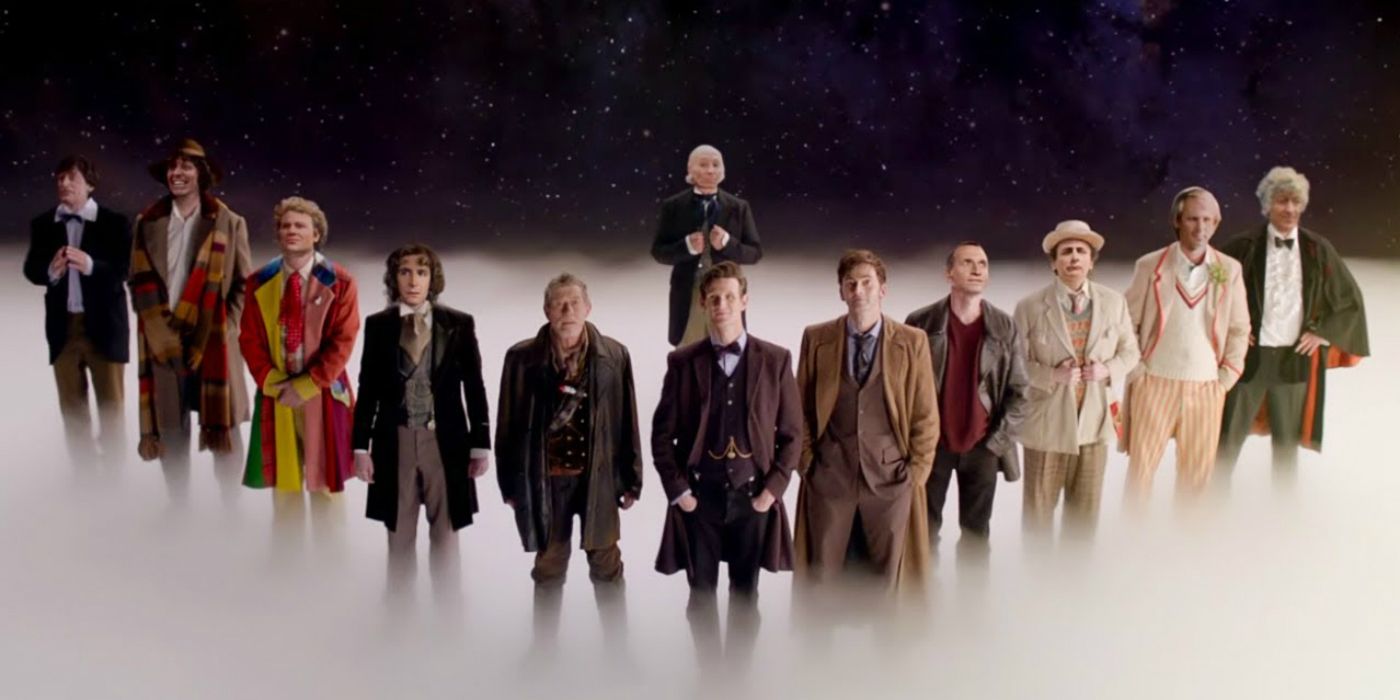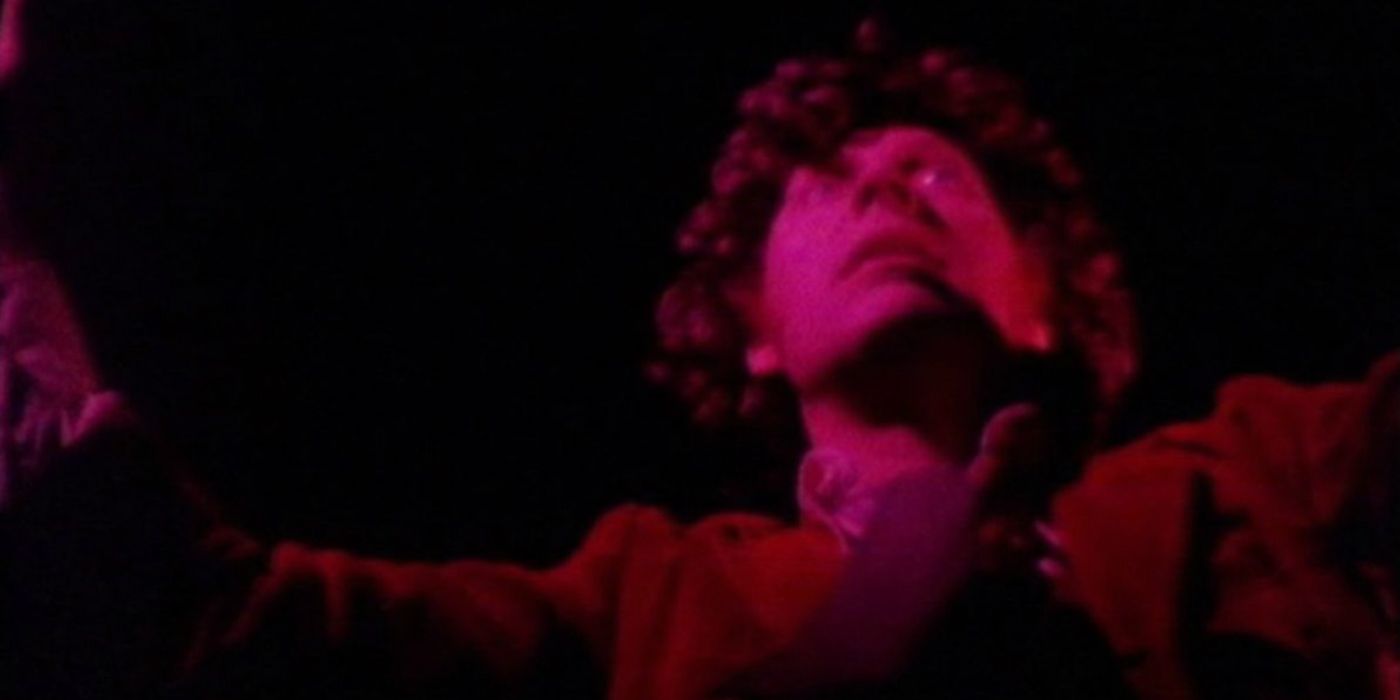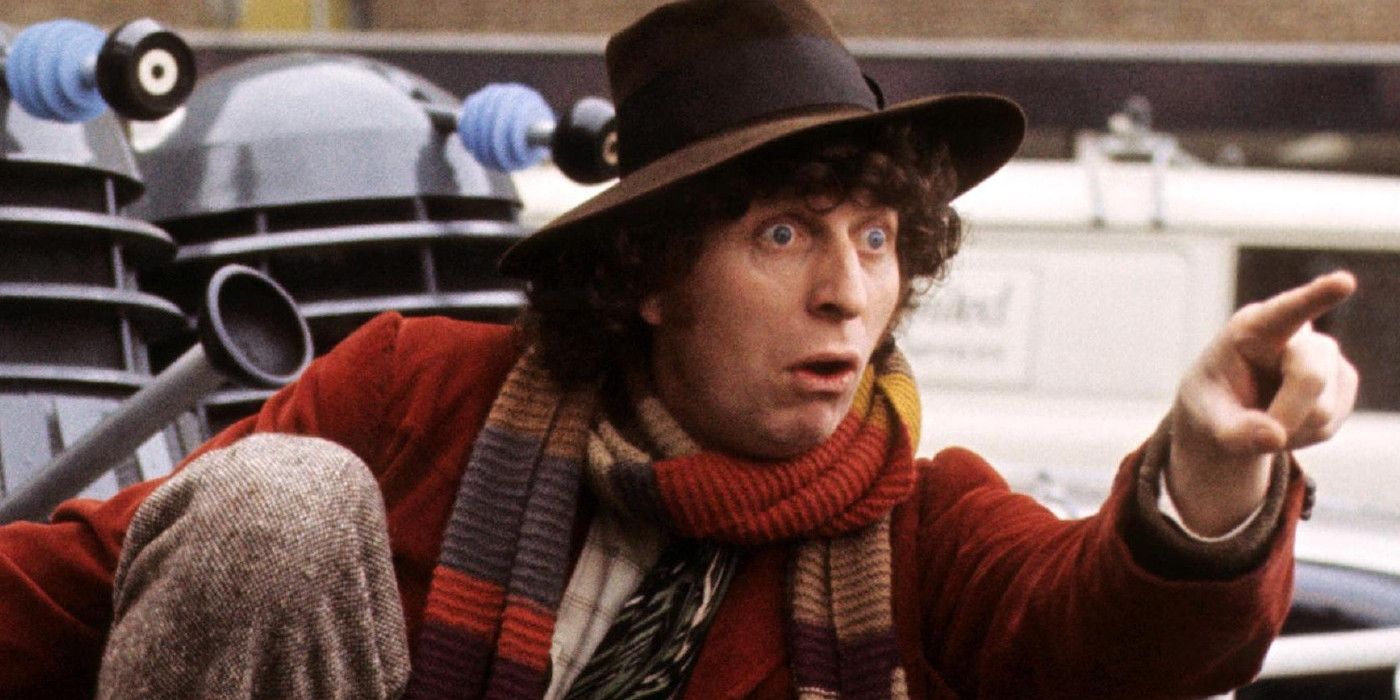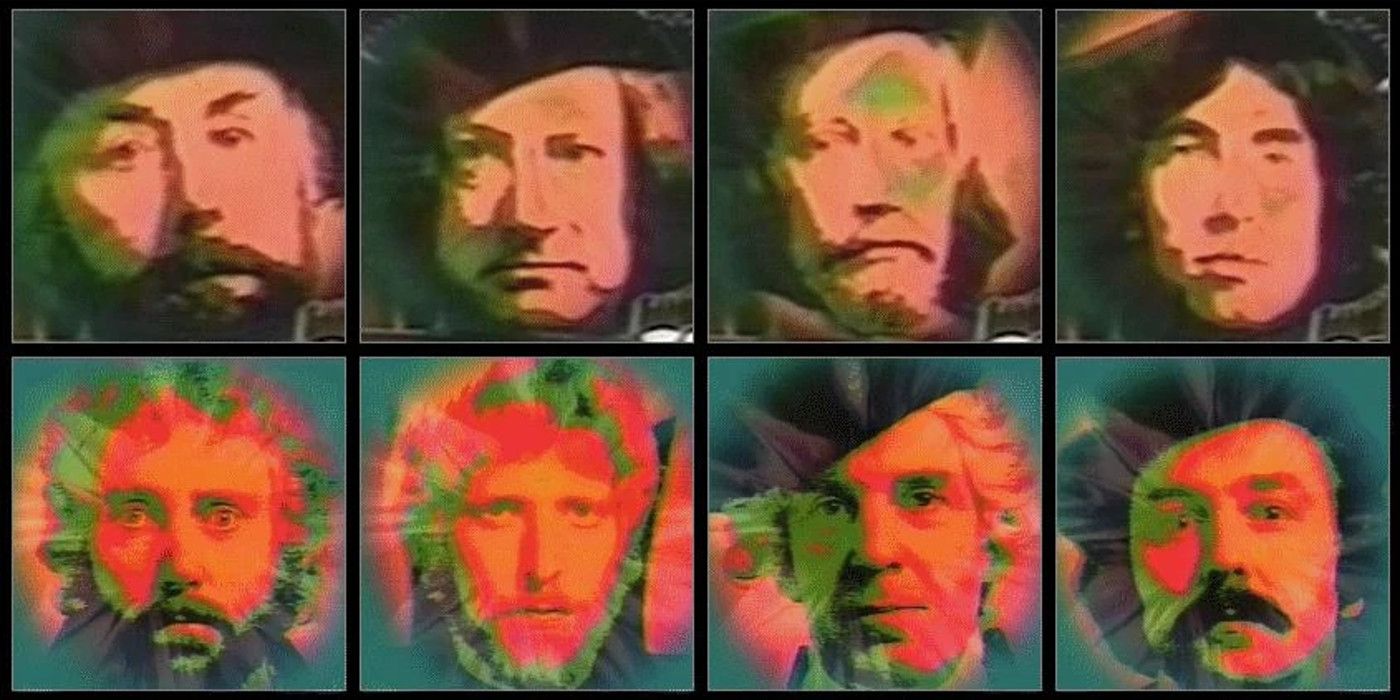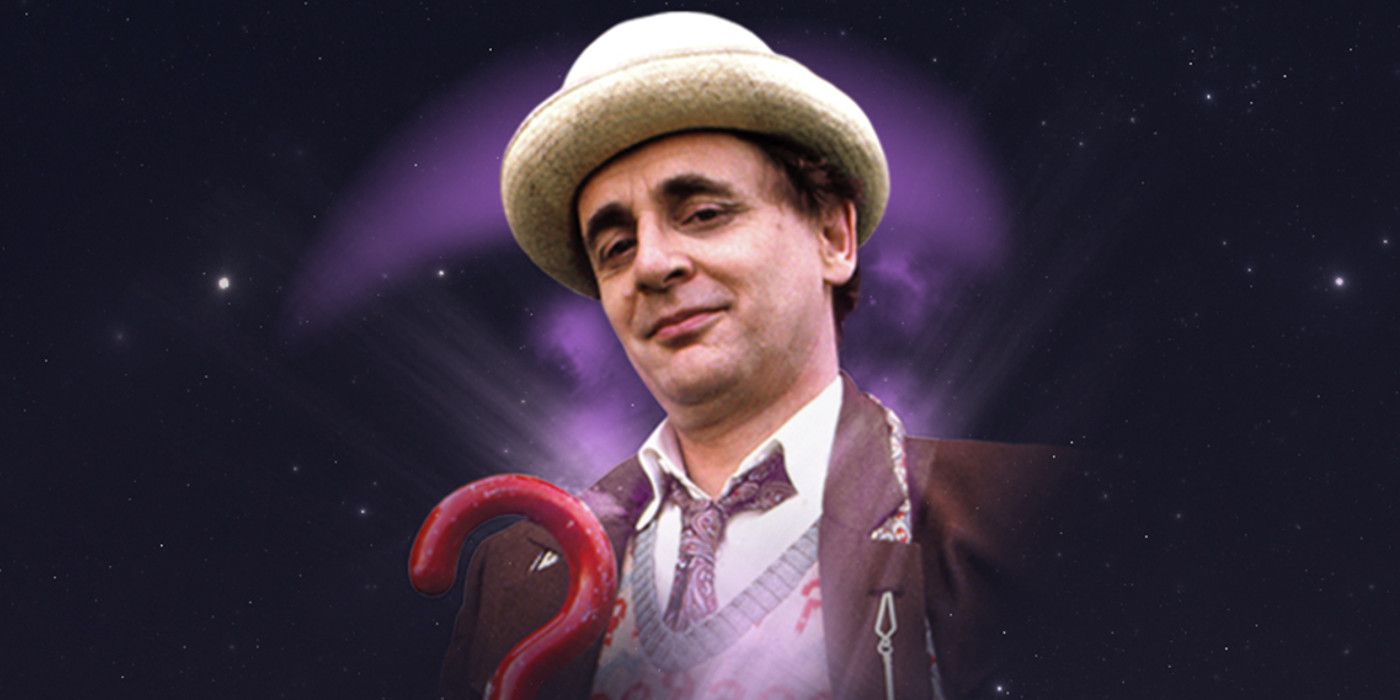Doctor Who's Timeless Child twist was foreshadowed in the classic series. No one can fault Doctor Who showrunner Chris Chibnall for a lack of ambition; he promised season 12 would change the show's entire lore, and he delivered. The Doctor Who season 12 finale saw Jodie Whittaker's Doctor learn she is, in fact, the Timeless Child.
The Timeless Child was a mysterious refugee from another universe who was discovered by the Gallifreyan explorer Tecteun. Tecteun was astounded to learn this child possessed the power of regeneration, and she dedicated her life to unlocking the Timeless Child's genetic secret. She succeeded, and the Time Lords were born. The Doctor is far older than she ever realized, with an untold number of prior incarnations; her memory was erased by the Time Lords, who concealed the truth from her for all these years.
Chibnall's Timeless Child retcon doesn't sit at all well with the relaunched Doctor Who series. Curiously enough, though, it fits perfectly with elements of classic Doctor Who. This does require viewers to make certain assumptions, though; namely that regeneration shakes up the Doctor's neurons, and some Doctors remembered more of their history than others. Indeed, the Chibnall era itself subtly hints the Doctor's memories bubble up to the surface on occasion, but the Time Lord mind-wipe prevents the Doctor questioning too much. That would explain a strange hint in Doctor Who season 11 that Whittaker's Doctor knew there had been previous female Doctors. Still, with that being said, let's examine the clues from classic Doctor Who that can now be taken to point towards the Timeless Child.
The First & Second Doctors Claimed To Have Invented The TARDIS
It's easy to forget the Time Lords were themselves a retcon, and the first two incarnations of the Doctor claimed to have invented the TARDIS themselves; in fact, the Doctor's granddaughter Susan actually said she was the one who came up with the word "TARDIS" in the first place. This is most explicit in the Patrick Troughton story "Tomb of the Cybermen," where the Doctor insisted his time travel was far superior to anything invented by humans from Earth. "Your father and Maxtible were working on the same problem," he told his new companion Victoria, "but I have perfected a rather special model, which enables me to travel through the universe of time." Aspects of this are still unclear - most notably the question of Susan's identity - but the Timeless Child retcon opens the possibility the Doctor did, indeed, invent the TARDIS.
The Doctors Have Been Very Confused About Their Age
Just how old is the Doctor? This has always been one of the most glaring problems in Doctor Who lore, with the Doctor making countless contradictory statements:
- In "The Power of the Daleks," the newly-regenerated Second Doctor said it had been over 750 years since he left his homeworld.
- Later, in "The Tomb of the Cybermen," the Second Doctor told Victoria he was "something like" 450 years old in Earth terms.
- In "Doctor Who and the Silurians," the Third Doctor said he had lived for "several thousand years." He attempted to make the same point in "The Mind of Evil," but cut himself off.
- The Fourth Doctor consistently claimed to have lived for around 750 to 760 years.
- The Sixth Doctor twice claimed to be 900 years old, in "Revelation of the Daleks" and "The Mysterious Planet."
- In "Time and the Rani," the Seventh Doctor claimed to be 953 years old.
The new series has been almost as inconsistent, but the Timeless Child retcon explains this inconsistency; the Doctor's memory has been at fault, with some Doctors half-remembering more than others.
The Tom Baker Era Involved Boundaries To Other Universes
In the story "Planet of Evil", the Fourth Doctor and his companion Sarah Jane Smith traveled to the planet Zeta Minor after receiving a distress call. The Doctor learned Zeta Minor was "the boundary between existence as you know it and [another] universe," one composed of antimatter. "From the beginning of time," he explained, "it has existed side by side with the known universe. Each is the antithesis of the other. You call it nothing, a word to cover ignorance, then centuries ago scientists invented another word for it. Antimatter, they called it." This clearly establishes a precedent for the same kind of Boundary seen in Doctor Who season 12, and revealed to be the Doctor's origin.
Interestingly, the Doctor seemed entirely comfortable with the idea of boundaries to other universes, and in one intriguing scene he suggested he was perfectly positioned to negotiate a truce with the inhabitants of the antimatter universe. "I'm not entirely without influence," he observed cryptically. He was right, promising the antimatter creatures to return all samples of antimatter. Sarah Jane queried if he meant his promise as a Time Lord; rather than reply, the Doctor avoided the question.
The Doctor Has Psychic Power Beyond Other Time Lords
The Doctor has frequently demonstrated psychic powers beyond those of other Time Lords, successfully engaging them in mental duels and using his mind to take control of the Matrix. This has always appeared to be at odds with the claim the Doctor is just an ordinary, albeit rebellious, Time Lord; some of the beings he's matched or beaten have numbered among the greatest Time Lords of history, including the likes of the solar engineer Omega and the Time Lord warlord Morbius.
The Brain Of Morbius Hinted At Past Doctors
The most critical clue was offered in "The Brain of Morbius," in which the Doctor engaged in the crucial psychic duel with Morbius. Memories of previous Doctors were displayed on a monitor, with Morbius declaring, "How far, Doctor? How long have you lived? Back, back to your beginning…" The images continued back after William Hartnell, displaying eight more faces, apparently in period dress, before the machine exploded. Producer Philip Hinchcliffe told the Radio Times he definitely intended to suggest there had been other versions of the Doctor before Hartnell. "I just reasoned that it was entirely possible that William Hartnell may not have been the first Doctor Who," he explained. "So yes, as far as [writer] Bob [Holmes] and I were concerned, the other faces were meant to be past Doctors… it is true to say that I attempted to imply that William Hartnell was not the first Doctor." Chibnall overtly acknowledged these faces as canon, because they appeared in the Doctor's memories when she blasted her way out of the Matrix.
The Sylvester McCoy Era Revealed The Doctor Is "More Than Just A Time Lord"
In the 1980s, script editor Andrew Cartmel and the various Doctor Who writers decided they needed to restore a sense of mystery to the Doctor. To that end, there are a number of lines of dialogue in seasons 25 and 26 hint the Doctor has a long-forgotten history - and the references can now be taken as pointing towards the Timeless Child. They included:
- A slip of the tongue in "Remembrance of the Daleks," when the Doctor remembered the first use of the Hand of Omega - the remote stellar manipulator that created the Eye of Harmony, the power source for all TARDISes. "And didn't we have trouble with the prototype," he recalled, and amended it to "they" when challenged by Ace.
- In a later scene, the Doctor told his enemy Davros he was "far more than just a Time Lord." This line was actually cut from the original TV broadcast, reportedly because showrunner John Nathan Turner objected to portraying the Doctor as some sort of a god. It was, however, broadcast in other regions.
- In "Silver Nemesis," the sinister Lady Peinforte claimed to know the Doctor's secret history, and his actions during Gallifrey's ancient history.
- In "Ghost Light," the cosmic entity named Control claimed the Doctor does not fit the description of any alien species; it's reasonable to assume Control had knowledge of the Time Lords.
- "The Curse of Fenric" saw a monstrous being called Fenric ascribe tremendous power to the Doctor. The creature claimed the Doctor once "pulled bones from the desert sand and carved them into chess pieces."
The original series was canceled in 1989, and the so-called Cartmel Masterplan was never completed. These clues were set aside by Doctor Who showrunner Russell T. Davies when he relaunched the series in 2005, but they've now been resolved in the Chris Chibnall era.
More: Doctor Who's Timeless Child Reveal Breaks Matt Smith's Name & Regeneration

